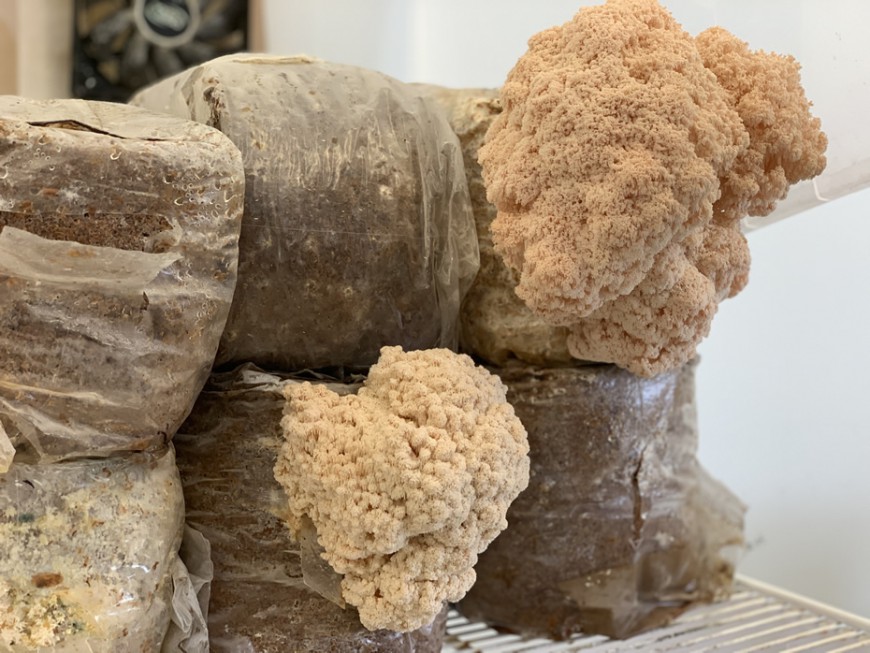In a project co-designed by iwi, researchers at Manaaki Whenua are investigating whether three specific fungal species that are unique to New Zealand and were once traditional Māori foods, could be grown and reproduced at a commercial scale.

Fungus growth in facility
‘There is a lack of New Zealand native food products or traditional Māori foods available to New Zealanders, and a substantial and growing demand from consumers for high-quality non-animal-based protein food products,’ says Manaaki Whenua’s lead researcher Christopher Smith, who has secured funding for the project via the Kiwi Innovation Network (KiwiNet)’s Emerging Innovators Programme.
’Several native plants have commercial food-related uses such as mānuka for honey, flaxseed oil, pikopiko (fern shoots), pūhā, and kawakawa, but our fungi haven’t been at any scale to provide a contemporary food source. Our ambition is to bring to market three native New Zealand mushrooms that are each unique and attractive sources of food, as well as good sources of protein and high nutritional value,’ he adds.
Within New Zealand’s fungal realm at least 7,000 to 8,000 unique species have been identified, and researchers expect there are thousands more.
The three species selected for the research project were suggested by iwi for their pleasant taste and potential for large-scale growth.
’We are going to be focusing on proving that the production methodology refined in lab-scale trials is adaptable to a larger scale for each of the three species, within a dedicated growing facility,’ explains Smith.
’Throughout the project, we will gather robust data on the costs of operating and production to better understand the risks and inputs associated with providing these mushrooms as a product to the New Zealand market,’ he says.
The project will then create a business case for iwi groups to consider investment into facility or containerstyle production.